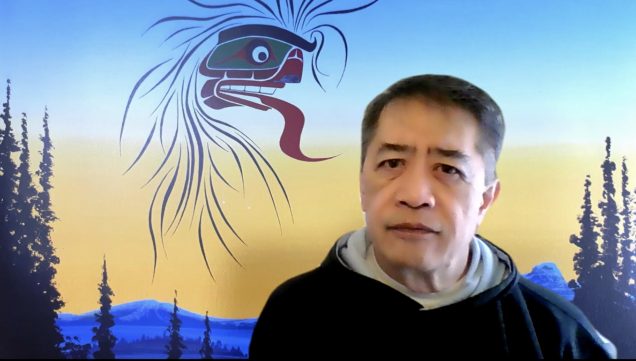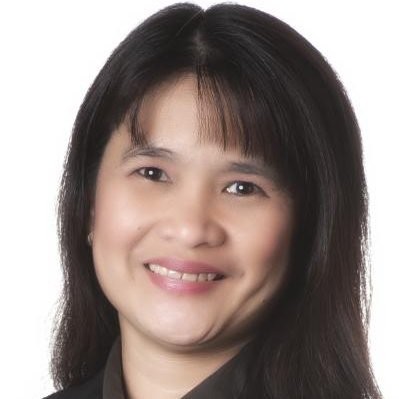Pinoys in Canada express solidarity with Indigenous Peoples in Canada
Pinoys in Canada express solidarity with Indigenous Peoples in Canada

Dr. Claver is scheduled to talk on the topic “Indigenous Peoples Experiences in Assimilation: Philippines and Canada” on June 13 in B.C. as part of Philippine Heritage Month activities.
Point to similarities with the struggles of IP in the Philippines
June 7, 2021
By Veronica Silva Cusi
The Philippien Reporter
Filipinos in Canada and allies have joined other Canadians and groups in expressing solidarity with Indigenous Peoples of Canada in light of the recent discovery of remains of 215 children in a former residential school in British Columbia.
The discovery was announced on May 27 by the Tk’emlúps te Secwépemc, the home community of the Kamloops Indian Residential School, the largest school in the Indian Affairs residential school system.
Groups and individuals, including Kapisanan Philippine Centre for Arts and Culture and political refugee Dr. Constancio “Chandu” Claver of the Cordillera Peoples Alliance (CPA), urged migrant Filipinos to take part in the reconciliation process starting by recalling the historical significance of Indian residential schools.
“We grieve for these children and their families and are reminded of the work we have to do as colonized peoples and racialized settlers,” said Kapisanan Centre, in a message to the community.
Kapisanan Philippine Centre is a Toronto-based charitable community organization.
“As Filipinx settlers, we owe many of our privileges on this land to the original caretakers of Turtle Island. We acknowledge that our presence as racialized settlers has come at the cost of Indigenous people’s lives, land, rights, language, and culture,” the statement added, while acknowledging that June is both Philippine Heritage Month and National Indigenous History Month.
For his part, Dr. Claver said immigrant Filipinos need to be aware of and understand the history and struggles of Canada’s Indigenous Peoples as he noted the similarities between their struggles with IP in the Philippines.
Dr. Claver is an Igorot physician-surgeon from the Cordillera region in northern Philippines and an international spokesperson for the CPA. He and his family moved to Canada in 2007 as a political refugee after an assassination attempt on his life in 2006 that cost the life of his wife. With his shared experiences with the Indigenous Peoples in Canada, he has been meeting with them and attending some of their activities. He is also coordinator-volunteer with Damayan Society for Migrant Education and Resources (Damayan BC), a non-profit organization helping migrants in precarious working conditions.
In an interview from Vancouver, B.C., Dr. Claver urged Filipinos who have moved to Canada to always remember that they, too, were once indigenous who were forcibly assimilated into Western culture, an experience that they share with those who were forced into residential schools.
He said if the Filipinos in Canada will remember Philippine history of Western colonization, they will see a connection with the Indigenous Peoples in Canada.
“If they start looking into history, they [Filipinos] will realize that there’s no difference between us and them,” he said. “The problem is Filipinos don’t want to think this way.”
But Filipino migrants cannot turn a blind eye to the struggles of IP in Canada, he said.
“If you [Filipino-Canadians] say ‘wala akong pakialam diyan (I don’t care),’ you are actually contributing to their [IP] repression,” he said. “You benefit from that repression because part of the material benefits that you have comes from the repression of IP.”
Dr. Claver urged the Filipino migrants in Canada to find solidarity with the Indigenous Peoples in Canada.
“But solidarity can only happen if we understand the issues — educating yourself about what’s here in Canada, what does it entail to be in Canada; what are the issues here, especially IP rights and First Nations,” he said.
Forced land grabbing is one of the shared experiences of IP in the Philippines and Canada. There is currently a global campaign to bring to Canada’s attention the alleged human rights abuses of Canadian mining companies in the Philippines. Among the abuses include forced relocation of IP.
Canada-Philippines Solidarity for Human Rights (CPSHR), a B.C.-based solidarity organization defending and protecting human rights in the Philippines, also condemned the atrocities done to the 215 children.
“The disturbing discovery in Tk’emlups te Secwépemc First Nation reminds us of how colonial powers have used aggressive assimilation and amalgamation to carry out their projects of genocide. The same ‹civilizing’ rhetoric used by the Americans in their imperialist war of aggression in the Philippines mirrored the narrative they used during their inceptive colonial project here on Turtle Island,” the group’s statement reads.
Also in solidarity with the IP of Canada is International Indigenous Peoples Movement for Self-determination (IPMSDL), an international group whose global coordinator is based in the Philippines and with CPA as a secretariat.
Calling residential schools “cultural genocide” against the First Nations of Canada, IPMSDL called for an investigation and identification of these deaths in the Kamloops Indian Residential School.
“The genocide persists today. The non-recognition of indigenous land rights, plunder, and exploitation of resources leads to further dispossession and dislocation of First Nations and loss of their cultural identity. The cases of First Nation girls and women missing and found murdered remain unresolved. The aspiration for genuine reconciliation will remain elusive without justice and accountability,” said IPMSDL in a statement.
——————————
 Veronica Silva Cusi is a multimedia journalist and researcher with more than two decades of experience. She was a business journalist for 12 years with Business World in the Philippines and a journalism lecturer for 14 years at University of the Philippines. She’s been covering ethnic media in the GTA for more than a decade and also worked as editor and reporter in Singapore. She holds two master’s degrees — Communication Research and Journalism. You can follow her on Twitter @VSilvaCusi.
Veronica Silva Cusi is a multimedia journalist and researcher with more than two decades of experience. She was a business journalist for 12 years with Business World in the Philippines and a journalism lecturer for 14 years at University of the Philippines. She’s been covering ethnic media in the GTA for more than a decade and also worked as editor and reporter in Singapore. She holds two master’s degrees — Communication Research and Journalism. You can follow her on Twitter @VSilvaCusi.
Comments (0)